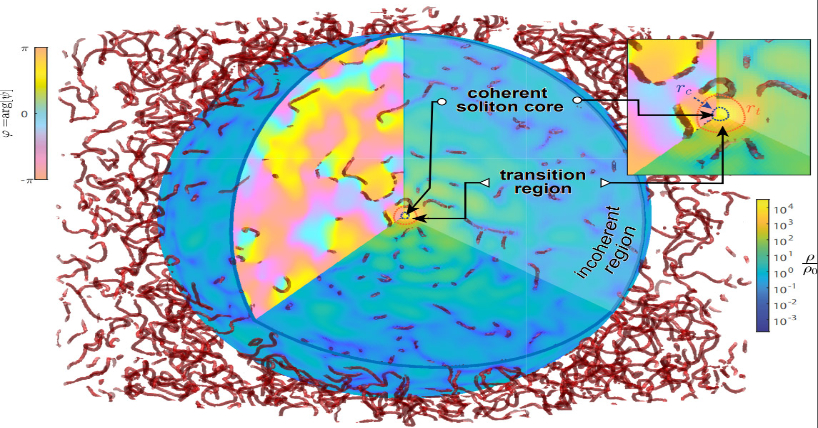Research sheds light on new model of cosmological Dark Matter
1 June 2023
A team of Newcastle University researchers led by Dr Gerasimos Rigopoulos and Professor Nick Proukakis, used insights gained from the study of ultracold atomic Bose Einstein Condensates, to analyse the behaviour of fuzzy dark matter, a new model for cosmological dark matter that has recently drawn the attention of cosmologists. The team also included research fellows Dr I-Kang (Gary) Liu and Alex Soto, as well as PhD student Milos Indjin.
They found that the physical state of the core of fuzzy dark matter halos, the gravitationally bound structures in which galaxies like our own are thought to form, is the same as that of Bose-Einstein condensates (BEC) formed in laboratory atomic traps.
The interdisciplinary team also found that the fuzzy dark matter surrounding the halo cores is in a turbulent state, with vortices and fluctuations that inhibit coherence across the entire halo. These properties distinguish fuzzy dark matter form the more widely accepted model of Cold Dark Matter in which there are no coherent features and no quantum vortices.

The scientists demonstrated that the centres of dark mater halos in this new fuzzy dark matter model are practically giant BECs, extending not over millionths of metres (micrometers) as in typical cold atomic systems, but over thousands of light years (equivalent to tens of million billion Kilometres), encompassing the centres of galaxies, and exhibiting a property characteristic of quantum systems and BECs called coherence.
The study also describes the internal motions of the outer halos and the kinetic energy of the dark matter there, which gives rise to an intricate tangle of the quantum vortices with characteristic density profiles in their cores.
Their findings have been published in the Journal Monthly Notices of the Royal Astronomical Society.
Click here to read the whole university press release
We now understand that there are specific similarities with BECs and the ultimate goal is to use this knowledge to devise ways for better testing this new and exciting model observationally
